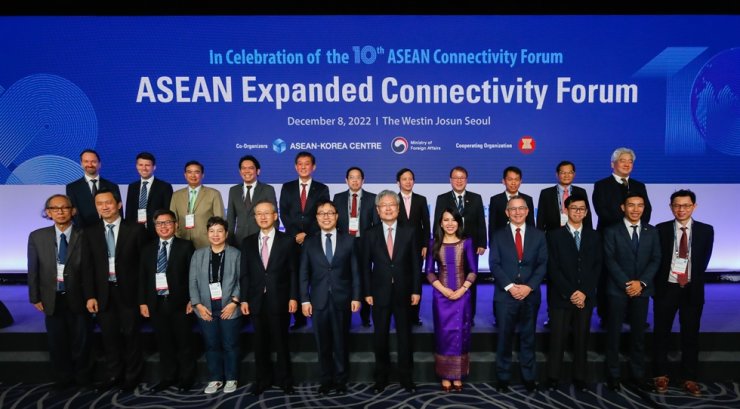
Korea’s Role in Boosting ASEAN Connectivity

BGA Senior Advisor Ambassador Scot Marciel recently delivered a keynote address at the tenth iteration of the ASEAN Expanded Connectivity Forum. The event, which took place on December 8, was organized by the BGA Korea Team led by Managing Director B J Kim, and was hosted by the ASEAN-Korea Center in collaboration with the Ministry of Foreign Affairs.
In his remarks, Marciel, who has nearly four decades of experience in diplomacy and public policy, including serving as the first-ever U.S. ambassador for ASEAN affairs, addressed the wider political, economic and strategic trends shaping Southeast Asia and Korea’s ability to play a role in ASEAN’s wider connectivity goals. As countries seek to boost post-pandemic growth and companies look to diversify sources out of China, Marciel noted that “Southeast Asia sees a huge opportunity,” and that the lack of demand for connectivity not being met by other dialogue partners offered Seoul an opportunity to contribute.
In particular, Marciel noted Korea’s role in technology, telecom and data centers, and the tremendous demand in the Mekong region for roads, ports, telecom and power grids. He also observed that that Korea has the advantage of being an important partner beyond the United States and China, both of whom may raise geopolitical concerns at times when they try to get involved in some business deals. “There’s, I think, great appreciation for the quality and the professionalism of the Korean private sector and people know what it can bring to the region,” Marciel said.
Marciel and BGA Korea’s efforts related to this high-level engagement were featured on BGA social media and covered in Korean media. The event also featured remarks by other participants, including ASEAN-Korea Centre Secretary General Kim Hae-yong, Cambodia’s Ambassador to Korea and Chair of ASEAN Committee in Seoul Chring Botum Rangsay; and Director of the ASEAN Connectivity Division Lim Chze Cheen.

Amb. Scot Marciel
Senior Advisor



















